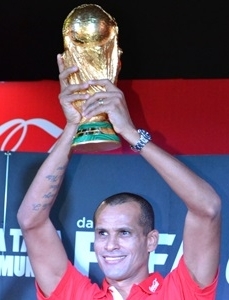| 1999 Ballon d'Or | |
|---|---|
 1999 Ballon d'Or winner Rivaldo in 2014 | |
| Date | 21 December 1999 |
| Presented by | France Football |
| Highlights | |
| Won by | |
| Website | francefootball.fr/ballon-d-or |
The 1999 Ballon d'Or, given to the best football player in Europe as judged by a panel of sports journalists from UEFA member countries, was awarded to Rivaldo on 21 December 1999. [1] On 22 November 2000, the shortlist of 50 male players compiled by a group of experts from France Football was announced. [2] [3]